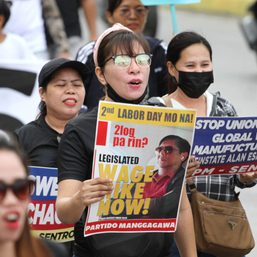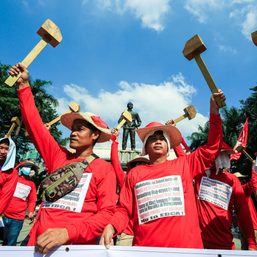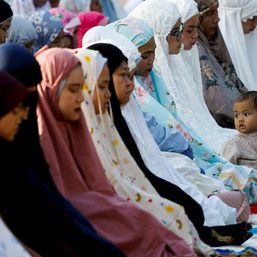SUMMARY
This is AI generated summarization, which may have errors. For context, always refer to the full article.

KUALA LUMPUR, Malaysia – Nearly a third of migrant workers employed in domestic households in Malaysia are working under forced labor conditions, according to a survey released by the United Nations’ labor agency on Thursday, June 15.
The International Labour Organisation (ILO) identified conditions such as excessive working hours, unpaid overtime, low wages, restricted movement, and being unable to quit among its indicators of forced labor.
The survey, based on interviews with 1,201 domestic workers in Southeast Asia, found 29% of those in Malaysia faced such conditions, compared to 7% and 4% in its neighbors Singapore and Thailand, respectively.
Malaysia did not immediately respond to requests for comment on the survey findings.
Wannarat Srisuksai, a spokesperson for Thailand’s labor ministry, said the treatment of domestic workers in the country has improved following laws introduced in 2012 to protect the group.
Singapore’s Ministry of Manpower said the vast majority of migrant domestic workers were satisfied with working and living in Singapore, with protections including timely salary payment, adequate daily rest, proper food and accommodation, and regular medical check-ups.
In all three countries, however, the domestic workers surveyed on average worked hours “well in excess” of those legislated for other workers, and none earned the minimum wage, the ILO said.
“Domestic work is one of the most important tasks in our society, and yet provided with the least protection. This can no longer be accepted,” said Anna Engblom, chief technical adviser at the ILO program, which conducted the study.
The ILO urged Malaysia, Singapore, and Thailand to ratify UN conventions on domestic workers and forced labor, to recognize the skilled nature of domestic work, and ensure migration pathways that did not tie the workers to their employers.
Households in Asia often employ domestic workers – usually women from developing nations such as Indonesia, Myanmar, and the Philippines – to carry out housekeeping tasks including cooking, cleaning, childcare, and gardening.
Malaysia has faced criticism in recent years following multiple incidents of Indonesian domestic workers being abused in Malaysian households, while several of its companies have been accused of exploiting migrant laborers.
Indonesians make up about 80% of domestic workers in Malaysia, according to the ILO. Last year, Malaysia and Indonesia signed an agreement to improve protections for domestic workers. – Rappler.com
Add a comment
How does this make you feel?















![[Only IN Hollywood] Spider-Man’s Pinoy bestie beats Fall Guy; Fil-Am voices Pixar film character](https://www.rappler.com/tachyon/2024/05/only-in-hollywood-may-8-2024.jpg?resize=257%2C257&crop=314px%2C0px%2C720px%2C720px)
![[Vantage Point] Philippine economic reforms run into headwinds](https://www.rappler.com/tachyon/2024/05/ph-economic-headwind-may-2024.jpg?resize=257%2C257&crop_strategy=attention)




There are no comments yet. Add your comment to start the conversation.